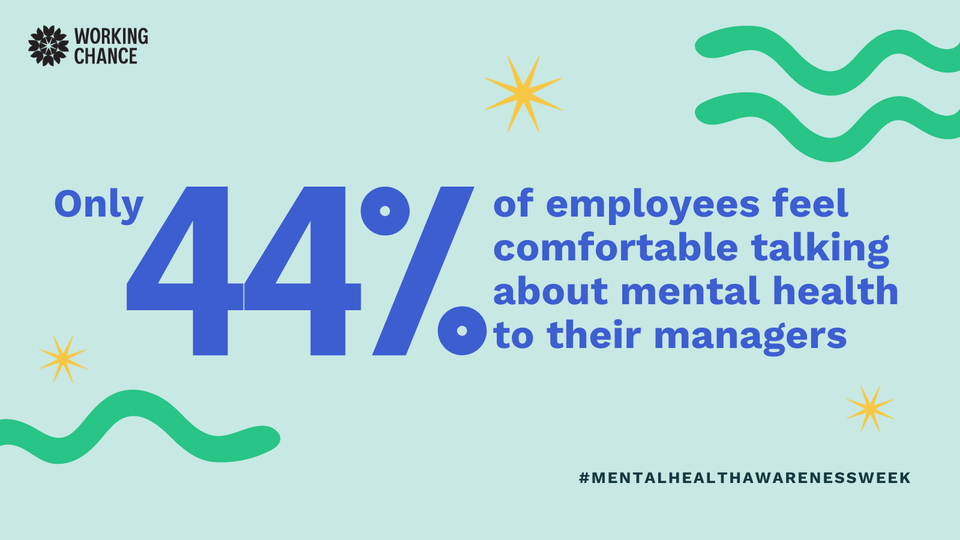For this year's Mental Health Awareness Week, we look how mental health impacts the experience of women with convictions in finding and succeeding in employment.
Our clients are some of the most resilient and dedicated women we’ve ever met, but it takes more than personal willpower to overcome mental health issues or trauma.
Out of our clients who were willing to disclose, 67% say they have experienced depression and/or anxiety. For some of our clients, depression and anxiety are the result of compounded trauma before and throughout their experience with the criminal justice system.

Financial stress also contributes to depression and anxiety. This is partly why we focus on employment support at Working Chance. We want all the women we work with to find that wellness so that they can reach their full potential.
Poor mental health can negatively impact our confidence and capacity to look for work - or to even be motivated to find work in the first place. To support our clients' mental health, we offer free therapy and regular wellbeing workshops, but such support can only do so much if we are not addressing the root causes of these conditions.
For women with convictions who do succeed in finding work, the struggle doesn't end there. There’s still a lot of stigma around mental health in the workplace. Less than half of employees feel comfortable talking about mental health with their managers, according to a 2018 report by Business in the Community.
Meanwhile, work stresses can also worsen our mental health. This can create a toxic environment where we are struggling but are afraid to ask for - or are unable to receive - the help we need.
At Working Chance, we check in with our clients once they get a job to make sure they’re adjusting well. But of course there’s still a long way to go to make sure all workplaces are safe places to talk about mental health.

This year in particular, we are also thinking of the many women who are still in prison, who are experiencing mental health crises under lockdown conditions.
This year’s #MHAW theme is nature, but for women in prison, having spent much of the pandemic locked in for some 23 hours per day, nature is out of reach. Instead of offering safety and rehabilitation, prison is endangering many women’s lives.
Our Head of Communications and Engagement Lizzy Jewell tells Big Issue North, even short prison sentences for women are “enough to really disrupt their children’s lives, disrupt rent payments and to lose their jobs.”
We must end this mental health crisis and invest in trauma-informed mental health support in the community so that women with convictions can heal and reclaim their lives.
